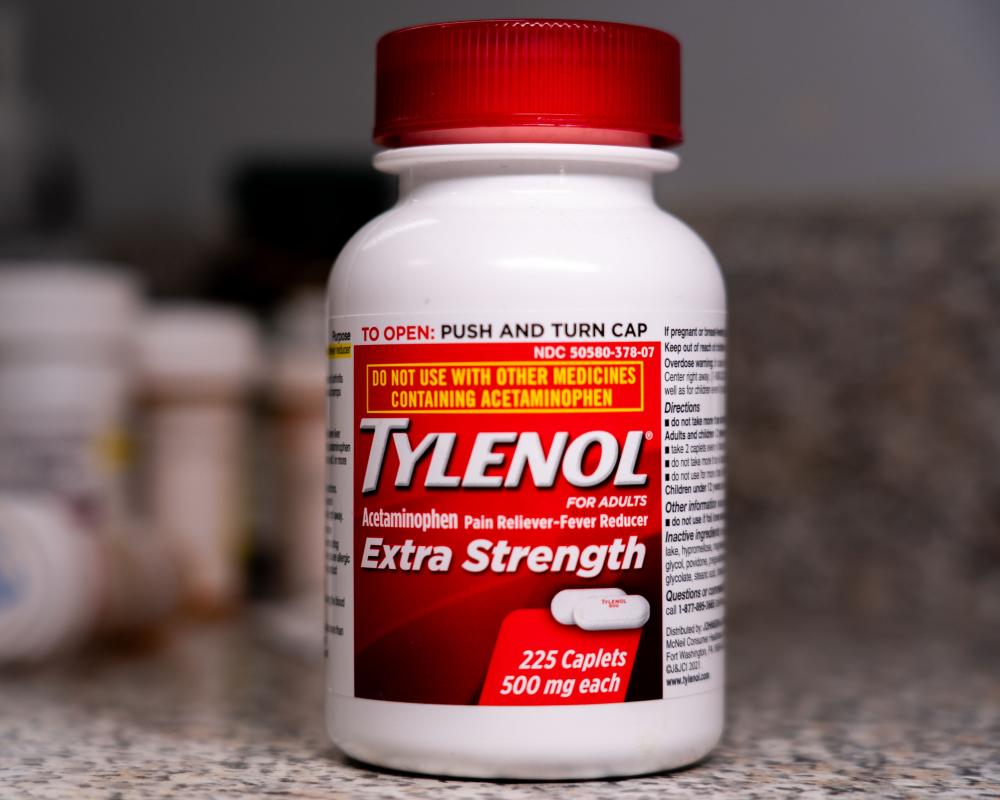Medical experts are raising alarms after Donald Trump warned pregnant women to avoid taking Tylenol, baselessly linking the painkiller – also known as paracetamol – with a rise in autism among children.
From the Society for Maternal-Fetal Medicine (SMFM) to the American College of Obstetricians and Gynecologists (ACOG), doctors have endorsed the use of acetaminophen during pregnancy after Trump said pregnant women who can’t “tough it out” without the painkiller should limit their intake.
“Suggestions that acetaminophen use in pregnancy causes autism are not only highly concerning to clinicians but also irresponsible when considering the harmful and confusing message they send to pregnant patients, including those who may need to rely on this beneficial medicine during pregnancy,” read a statement from Steven Fleischman, the president of the ACOG.
Related: Trump rails against Tylenol but autism claims not supported by science
Along with Trump, health secretary Robert F Kennedy Jr said the health department was encouraging physicians to exercise their “best judgment” by prescribing the lowest effective dose for the shortest necessary duration.
The claims from Trump and his health secretary were also widely condemned by medical experts and regulators around the world.
The British health regulator MHRA said on Monday there remains no evidence linking the use of paracetamol during pregnancy with autism and that it continues to recommend it for pain relief. That view was also backed by Australia’s Therapeutic Goods Administration (TGA), which re-confirmed that the drug is safe for use in pregnancy on Tuesday.
A statement from the Society for Maternal-Fetal Medicine said “a thorough review of existing research suggesting a potential link between acetaminophen use during pregnancy and an increased risk of autism and attention deficit and hyperactivity disorder (ADHD) in children has not established a causal relationship.”
Tylenol posted on Instagram an acknowledgment that followers “may have questions about conflicting information” in recent media coverage.
“What we can tell you is: credible, independent scientific data continues to show no proven link between taking acetaminophen and autism. Medical and public organizations agree,” reads the video.
Doctors have also on social media spread the message about Tylenol’s safe use.
“If you are pregnant right now and considering whether Tylenol is safe in pregnancy, I want you to know that the best available science does not show an association between Tylenol use in pregnancy and an increased risk of autism,” said pediatrician Edith Bracho-Sanchez in a Facebook video.
Dr Monique Botha, associate professor in social and developmental psychology at Durham University, was one of a number of international medical experts to state that they were “exceptionally confident” no relationship exists.
“There are many studies which refute a link, but the most important was a Swedish study of 2.4 million births published in 2024 which used actual sibling data and found no relationship between exposure to paracetamol in utero and subsequent autism, ADHD or intellectual disability.
“This suggests no causal effect of paracetamol in autism,” she said.
The commissioner of the US Food and Drug Administration, Marty Makary, also announced that the agency was approving the medication leucovorin, a drug currently used for patients with cancer and anemia, for the treatment of autistic children upon prescription.
“Leucovorin (folinic acid) has not been a recommended treatment for autism,” said the American Psychiatric Association. “It will require many more years of research before we know if leucovorin is an appropriate treatment for individuals with autism.”
The group added: “Autism is a complex disorder, and it is incorrect to imply that a handful of studies have established causation. A strong base of evidence shows that acetaminophen, when taken as directed, is safe for use during pregnancy. Any decisions around a course of treatment should be determined by a patient and their doctor.”

